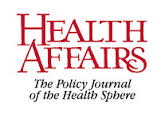SNAP Comments on Proposed Medicaid DSH Regulation
The Safety-Net Association of Pennsylvania has written to the Centers for Medicare & Medicaid Services to object to how the agency proposes changing its methodology for calculating eligible hospitals’ Medicaid disproportionate share (Medicaid DSH) payments.
 In particular, SNAP opposes the manner in which CMS would treat payments from Medicare and third-party payers made on behalf of Medicaid-eligible individuals.
In particular, SNAP opposes the manner in which CMS would treat payments from Medicare and third-party payers made on behalf of Medicaid-eligible individuals.
In SNAP’s view, the letter notes,
…the hospital-specific DSH limit has come to penalize the very hospitals that Medicaid DSH payments were designed to support.
The SNAP letter explains that
What concerns SNAP at this time is CMS’s apparent decision to rationalize and codify in regulations a narrower interpretation of the Medicaid DSH limit than what Congress described in section 1923(g) of the Social Security Act.
Read SNAP’s complete letter here.






